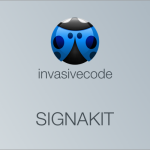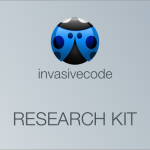Biometrics: identity theft or individual security?
The iPhone 5s Touch ID™ has changed the standard for smartphone security. Apple’s innovative technology, which was initiated by the purchase of AuthenTech in 2012, enables instant access and personalized security, suddenly making it feel antiquated and overly involved to remember and enter a password into our smartphone.
As users it is often easy to accept new seemingly better technology without question. However, even though the Touch ID™ appears to make the iPhone more streamlined and secure, when it comes to fingerprints there are many questions that must be asked before users commit completely. Beneath the Touch ID’s™ infallible image there are practical, moral, and even dire implications concerning individual security and identity. And in order to understand the implications of Touch ID™ we must comprehend what it truly means to give our fingerprints and any other biometrics away.
The Touch ID™, although innovative, is not a wholly original premise. Fingerprints are biometric identifiers: distinctive, measurable characteristics used to label and describe individuals. Every human is unique, and biometric technology, automated methods of verifying or recognizing the identity of a living person based on a physiological and behavioral characteristic, has been used for years. In fact, the pervasive nature of fingerprints as biometric identifiers makes allowing access to our fingerprints appear menial. It is easy to think: “Our fingerprints are left on everything we touch, how important can they be?”. Fingerprints, however, like all biometric identifiers, contain our unique individual identity. Other biometric identifiers include: hand geometry, iris, face, voice, speech, gait, and retina. These biometric identifiers are used in prison systems, border control, bank systems, voting systems, and computer network access control, to differentiate and classify individuals for a variety of purposes. Fingerprints, in particular, have the most appeal when it comes to smartphone security. Fingerprint readers are small, intuitive, un-intrusive and relatively easy to operate and engineer. Therefore, it is not surprising that Apple chose to pursue fingerprint identification technology as a way to improve the iPhone.
With Apple leading the way, biometric technology is destined to become integrated into everyday life. As biometric technology progresses it will feel less significant to provide our fingerprint or allow our retina to be scanned when when we sign in at an ATM, cross the border into another country, or register at a University. This fact means that biometric technology will become a vital aspect of security in the complex modern world that constantly pushes the limits of individual privacy and the confidentiality of data.
Biometric technology, however, reveals a societal dilemma concerning security. If the primary goal is to increase security, to have stronger confidence concerning the true identity of an individual and to have this information not be reproducible, biometric technology could actually contradict security and lead to the lose of individual identity, security, and privacy. When an individual allows access to their fingerprint the individual is giving something away that can’t be replaced. If a renegade organization or individual obtains an individuals biometric trait, and is able to replicate it, the individuals entire identity could be stolen and reproduced. But here is the catch: once this occurs there is no way to reset the stolen biometric trait. An individual’s most important identifying characteristic is taken forever.
Biometric technology, therefore, must be scrutinized. It is important to understand that in order for biometric technology to function information must be incorporated into a larger system. Technologies like the Touch ID™ are only a part of a larger system that is able to classify and recognize individuals. The larger a system becomes the greater possibility for breaches in privacy. Many organizations that appear capable are actually unable to run large-scale information technology (IT) systems securely and ethically. And in many cases, the technology of biometric recognition is ahead of the overall security of the system. Ultimately, developers of biometrics technologies and individuals providing biometric traits must think about the greater implications of their actions, and preserving personal identity must be paramount.
But how can this be done? The answer to this question lies in sound technology and sound judgement. The greatest breaches in security often occur as the result of incompetence, or when technology attempts to overstep its bounds and tries to do more than it’s capable of. Well built sound technologies, on the other hand, have fewer glitches, and imperfections, and thus fewer possibilities for leaks and security breaches. In addition, individuals must be smart when providing their biometric traits. No matter how insignificant it seems to place our finger on a button, this simple action has great importance. So, use the utmost care when providing a biometric trait.
If you seek comprehensive understanding of biometric technology or wish to incorporate biometric technology into your development project you can contact us, and we will engage our extensive expertise towards your biometric goals.
Geppy
Geppy Parziale has 15+ years of professional experience in pattern recognition and machine vision. He spent most of his researches in fingerprint recognition and biometrics. He pioneered a novel touchless fingerprint technology trying to overcome the major drawbacks of the legacy fingerprint touch-based devices. He also patented and developed a 10-print capture sensor for the National Institute of Justice, Federal Bureau of Investigation, Department of Defense and Department of Homeland Security within the Fast Capture initiative winning a grant of $3.5 millions. He created and sold two sophisticated and highly-accurate fingerprint recognition algorithms based on a novel pattern matching technique that do not use minutiae points. He is currently working on a novel fingerprint recognition algorithm optimized for mobile devices. Geppy also shares his extensive expertise in iOS training classes and specialized consulting also for biometrics.






